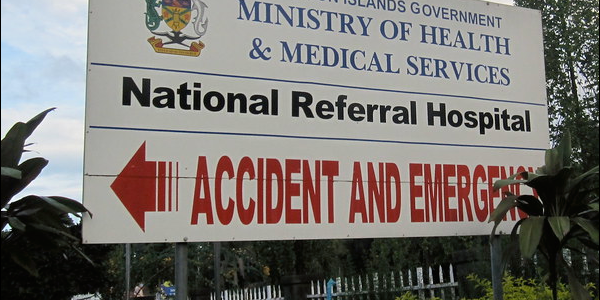MANY families are raising serious concerns about delays in medical examinations for critically ill patients, which they say sometimes results in patients being sent home and eventually succumb to their condition, whilst patients held up by doctors for further examinations ended up dying in the wait.
This situation not only causes grief, but places a significant financial burden on families tasked with returning the deceased to their home villages for burial.
Many families have voiced frustrations in the past over what they perceive as a lack of urgency in treating critically ill patients. Some allege that delays in proper medical attention by doctors have led to missed opportunities to save lives of patients.
“We brought our family member to the hospital when their condition was critical, but instead of thorough examinations or urgent treatment, we were advised to take the patient home and rest there,” one grieving relative told Solomon Star in an interview this week.
“A few days later, we lost our loved one and the added cost of transporting the dead body back to our village is overwhelming,’’ the grieving family member said.
For many families, particularly those living in rural areas or outer islands, the cost of transporting a deceased loved one can be financially-crippling.
These expenses include hiring vehicles, boats, or flights, along with logistical arrangements for the funeral.
Health advocates have called for a review of medical protocols to ensure that critical cases are treated with the urgency they deserve.
“We understand the pressures on our health care system, but no patient in critical condition should be sent home without a comprehensive examination,” one advocate from Gizo stressed.
“However systemic challenges regarding our healthcare systems especially in resources constrained settings often face overwhelming demands, limited facilities, equipment or staff may contribute to delays rather than intentional negligence.
“Another one is misunderstanding where sometimes what families perceive as unnecessary delays might actually be efforts by doctors to understand a patient’s condition better or stabilize them before discharge.
“Lastly, clear communication between medical professionals and families is crucial. Families should understand the rationale behind any delay or discharge to avoid confusion or feelings of neglect,’’ the concerned Health Advocator added.
Families are urging the government and healthcare providers to prioritise critical cases and improve the availability of resources to prevent avoidable deaths.
They also stress the need for community awareness about the importance of seeking timely medical attention and advocating for better health services.
As these concerns grow, many hope that systemic improvements will reduce the burden on families and ensure that patients in critical condition receive the care they urgently need.
By ULUTAH GINA
Solomon Star, Gizo









